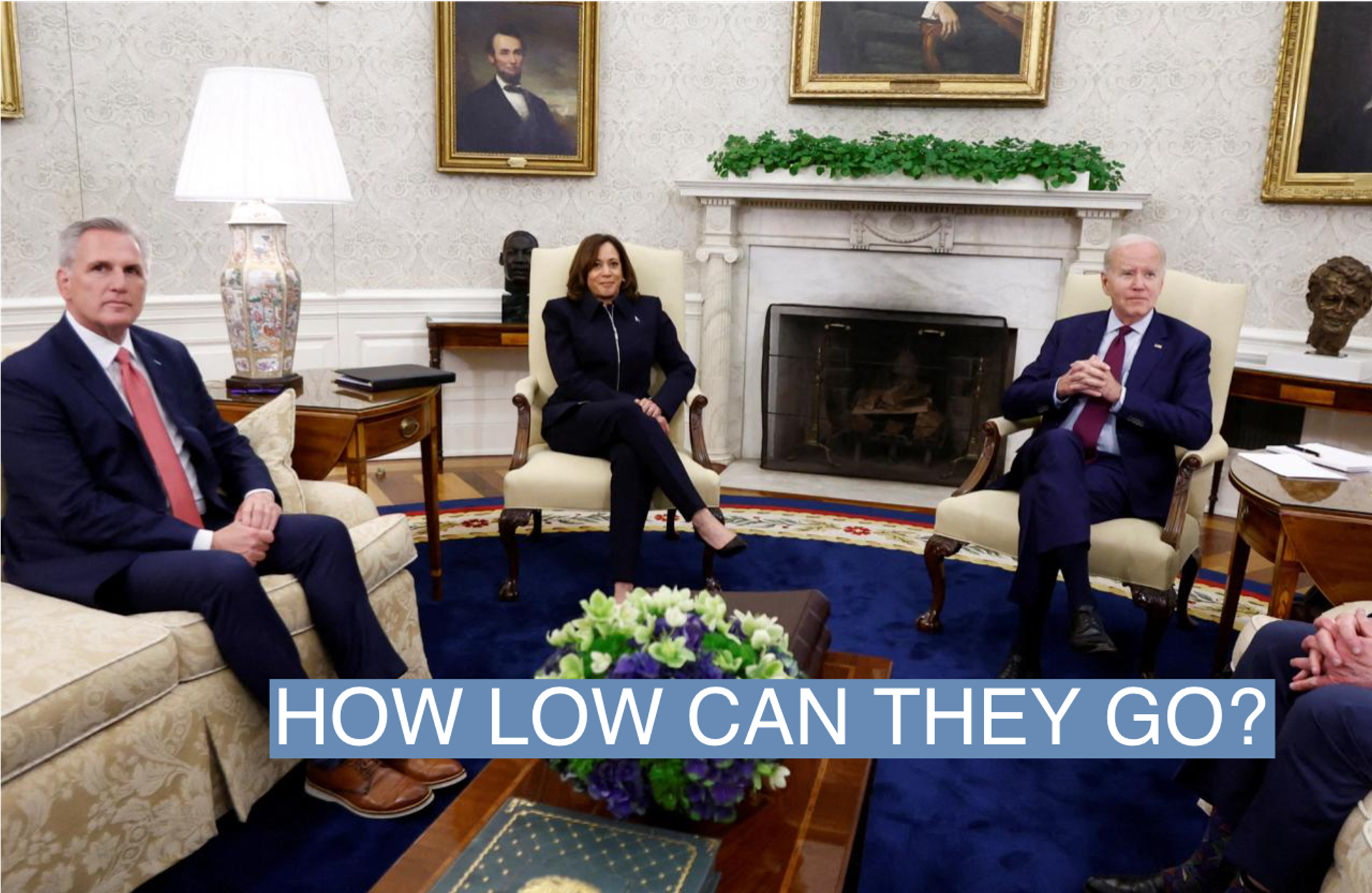The News
President Biden says he’s ready to cut spending in a debt ceiling deal. But how far is he willing to go?
That’s one of the questions as he prepares to sit down with House Speaker Kevin McCarthy for another critical meeting about the debt ceiling at the White House on Monday. It follows a tumultuous few days that saw Republicans temporarily march out of negotiations and the president call their demands “simply, quite frankly, unacceptable.”
Talking to reporters at the Capitol on Sunday, McCarthy said he’d since had a “productive” conversation with Biden on the phone, during which they’d agreed to pick up talks. “I think we can solve some of these problems if he understands what we’re looking at.”
Joseph’s view
While the two parties are still far apart on several major issues, the fight over how much to tighten the federal budget is the make or break debate to keep an eye on.
During a news conference on Sunday, Biden conceded that any agreement would include spending reductions heading into next year. “We have agreed to cut spending,” the president said. “We’ve cut spending and we’re gonna continue to cut spending.”
But so far, the two sides have yet to agree on what would actually count as a spending cut. An official briefed about the talks said that on Friday, White House negotiators offered to keep both defense and nondefense spending flat without any adjustment for inflation next year. That would amount to a cut on paper, relative to how much the government is currently projected to spend in 2024.
Republicans warn that’s not enough. They’re demanding a deal that cuts discretionary spending in 2024 below this year’s levels.
“A red line is spending less money,” Louisiana Rep. Garret Graves, McCarthy’s top lieutenant in negotiations, told reporters over the weekend. “And unless and until we’re there, the rest of it is really irrelevant.”
The fight has been made more complicated by the GOP’s position on military spending. According to the official briefed on talks, Republicans on Friday pushed to increase the Pentagon’s funding, which would have required even larger cuts on nondefense programs like education, childcare, and housing in order to reduce the overall budget.
The same source told Semafor that House Republicans sought to cap the budget’s annual growth for six years. The White House is still pushing for two-year caps.
Already, there seems to be a sense in Democratic circles that the White House is likely to give additional ground on spending.
John Lawrence, the former chief of staff to Speaker Nancy Pelosi, argued in a Sunday blog post that while hard to predict its precise shape, a debt limit deal “doubtless will involve a Democratic capitulation on spending cuts.”
Know More
Beyond the budget numbers, Democrats and Republicans are still locked in a contentious fight over work requirements for safety net programs. Biden has signaled he may be willing to accept new rules for Temporary Assistance for Needy Families, but McCarthy’s team is pushing for stricter limits on food stamps as well.
On Friday, the person briefed on talks said, GOP negotiators pushed to limit the ability of states to waive the program’s current work requirements when unemployment spikes — a demand that had not been included in the bill originally passed by the House.
The View From The Sidelines
Progressives have been spooked by continued reports of the White House weighing work requirements, and are mostly relying on press accounts for the latest in the talks, according to a Senate Democratic aide. That’s in part because neither the Senate nor Democratic House leaders are involved in discussions.
There appears to be a growing sense of regret within Democratic ranks that the party missed an opportunity to neutralize the debt limit threat when they fully controlled Congress and the White House for two years.
Sen. Tim Kaine of Virginia told Politico that if he could “do one thing different, it would have been raising the debt limit late last year.” The Democratic Senate aide vented to Semafor that “the debt ceiling could have been raised in the American Rescue Plan or in reconciliation” during last year’s lame-duck session.
“We had a lot of time to come up with a plan,” they added. “And we didn’t.”
Room for Disagreement
At least one prominent Democrat is warning that the White House risks bleeding support from their own party if they concede to Republicans on spending.
“The White House needs to understand: How many Democrats do they have that would actually vote for these kinds of cuts?” Rep. Alexandria Ocasio-Cortez of New York told Politico. She warned that anywhere from 100 to 150 House Democrats are “potentially off the board” on any proposal with significant spending cuts.
Notable
- The Washington Post’s Jeff Stein profiled Treasury fiscal assistant secretary Dave Lorbryk, a lifelong bureaucrat who likely gave up a lucrative Wall Street career and is now in charge of managing the country’s daily finances — and figuring out the X-date when the U.S. could finally default.
